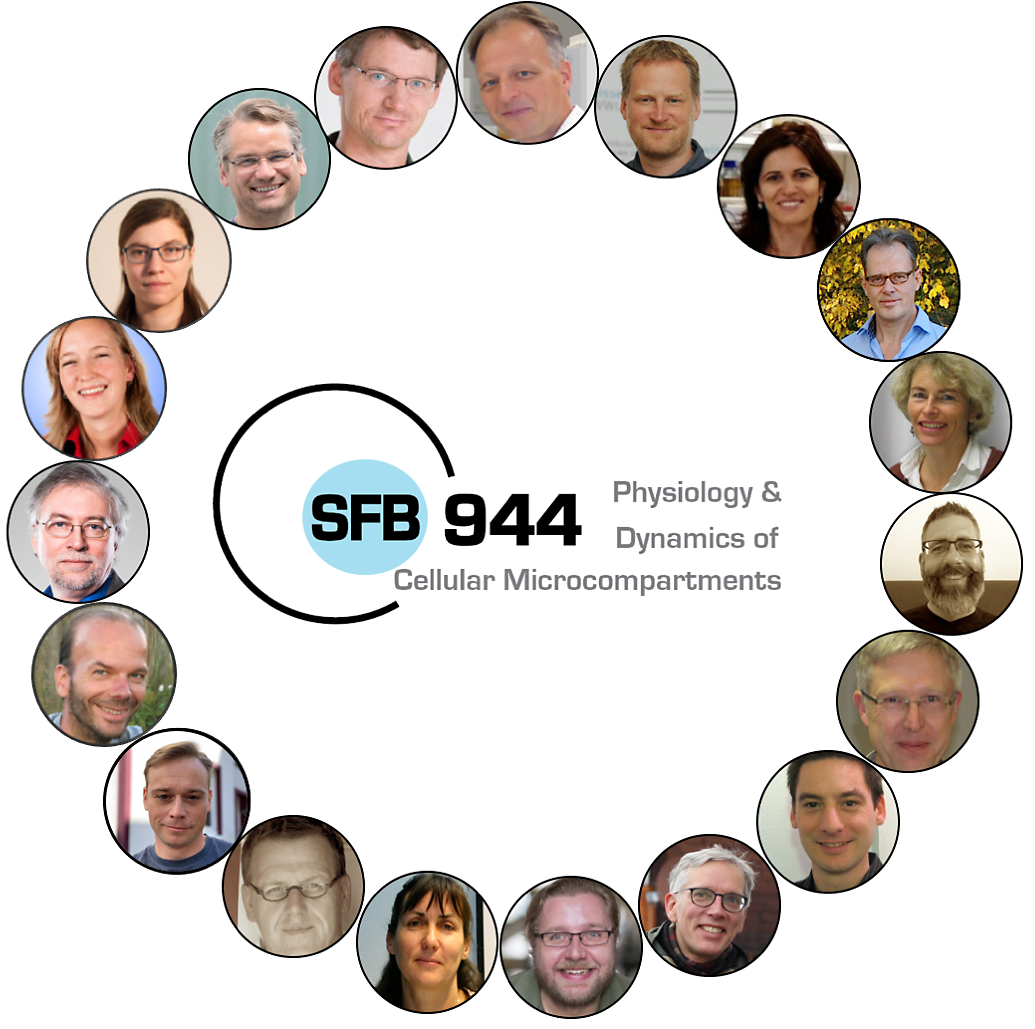Hauptinhalt
Topinformationen




Collaborative Research Center 944
Physiology and dynamics of cellular microcompartments
Welcome to the homepage of the Collaborative Research Center 944 (Sonderforschungsbereich/SFB 944). Groups from the University of Osnabrück and Münster share a common interest in the physiology and dynamics of the sub-organellar organization (microcompartmentation) of proteins and lipids.
Technical expertise of the groups extends from cell biology to developmental genetics, biophysics and membrane/cell biology. The Z-project provides access to high/super-resolution and time-resolved live cell microscopy, and will provide training for students of the international research training group. The SFB 944 started its work in January 2011 and is now in its third funding period (2019-2022).
Speaker of the SFB: Christian Ungermann
Deputy Speaker: Joost Holthuis
Executive board members: Christian Kost, Katia Cosentino, Milos Galic
Goals
The maintenance of complex cellular functions relies on a highly coordinated and dynamic coupling between the extracellular environment, membranes, and the cytoplasm. This coordination frequently requires the action of functional units at the sub-organellar level, which is achieved by the assembly of proteins (and lipids) into a dynamic microenvironment. The SFB 944 aims to unravel the general principles underlying the suborganellar organization into microcompartments, to study their constituents (proteome), regulation (dynamics), and turn-over, in order to reveal their physiological importance. Our particular focus is on microcompartments, which form only transiently in the context of membranes or other dynamic subcellular structures, often depending on the specific microenvironment (pH, redox). Key challenges come from the submicroscopic dimensions and the transient formation of such microcompartments, requiring novel approaches for their spatio-temporal and functional analysis. The groups of this consortium thus focus on central biological questions concerning microcompartments that are involved in
(i) signal generation and transfer across membranes and within the cell,
(ii) assembly and disassembly of membrane protein complexes,
(iii) vesicular transport and vesicle fusion, and
(iv) cell-cell adhesion.
Protein functions in microcompartments is explored by structural, biochemical, biophysical, cell biological, physiological and genetic techniques. The main foci are
(i) the identification of the functional proteomes and interactomes within microcompartments,
(ii) the (quantitative) analyses of molecular protein-protein interactions and conformational dynamics,
(iii) the reconstitution of subreactions in vitro,
(iv) the spatio-temporal dynamics of protein distribution in microcompartments,
(v) the kinetic tracing of physiological reactions occurring in microcompartments, and
(vi) the relevance of microcompartmentation for cell physiology using the respective mutants in a variety of established model organisms.







